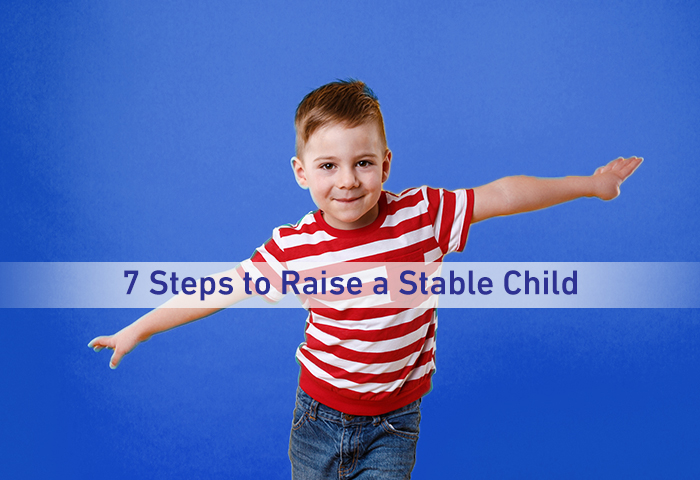
From day one in your child’s life, your mind starts to prepare itself to raise a stable generation. Some people think that the upbringing process starts at 3 years old for example. But, research has shown that children start to have a glimpse of what is going on when they turn 90 days old.
Your child starts to notice the language, vocabulary, actions, and even energies of their mom or caregiver. If a mom is down the baby can feel it, get affected by it, and sense it immediately.
This is why raising a stable child is not an easy task, it takes a mentally-stable parent to do so. And despite being something extremely obvious, not all parents realize that they need to be good to themselves first before being good to their children. They need to be able to face their fears, childhood traumas, and issues before raising a new generation.
- Fix Yourself First
You can’t raise a good and stable kid without being one at first. You have to accept your inner self so you could accept your child, in order for you to understand their anger, fear, and weakness. Making peace with yourself will help you unlock the mental and emotional doors between you and your child.
- Keep Your Promises, Always!
The moment your child feels that you won’t do what you say is the moment they lose trust in you. This will raise a stubborn, shaky, and bossy kid who knows by heart that you are only threatening them.
- Just Accept the Mess
Your child is exploring the world with minimum emotional and mental strength to help them face it. So, not every tantrum means their being mean or stubborn, sometimes it could be a behavioral issue just like the Oppositional Defiant Disorder (ODD).
- Be a Good Listener
Hearing how your child’s day went, and what their issues, stories, and feelings have been through that day helps build a strong character. It helps to raise a child that feels safe, so they can face the world, a child that is emotionally strong enough to be stable.
- Follow the Right Ways of Grounding
Hitting and humiliating are never the answer! These twisted-unhealthy ways of grounding and punishing are outdated and forbidden nowadays. These ways raise up emotionally abused children and youth that carry a lot of mental and emotional burdens around, turning out unstable. On the other hand, not grounding or punishing your children at all is not the answer either, it will make your children stubborn, bossy, and full of ego. If you want to know more about how to ground your children with zero emotional harm, visit this link.
- Don’t Get Them Involved in Your Personal Issues
Hearing your fights with their father, knowing all the issues you are facing at home, whether it’s your personal issues as a couple, or your financial ups and downs as a family won’t help at all. Maybe they will forget all these issues when they grow up, but the effect won’t wear away, ever. Studies show that children who face violence even if it’s indirectly tend to grow up to be violent as well, while the others tend to be mentally and emotionally fragile.
Children who are raised in an unstable home with fights, yelling, and issues lose their faith in stable romantic relationships, which means they grow up afraid of entering one, and if they do, they rarely can keep it going.
- Don’t Make Them Feel Like a Burden
Responsibility is hard, and raising children with a load of financial and emotional burdens makes it even harder. So, for example, the mother notices that all her time is occupied due to her 24/7 responsibility for her kids at least for the very first 5 years of their lives. She feels like her personal space is invaded, her career is fading away, and her time alone is rarely happening.
On the other hand, the father feels like an ATM that needs to provide all the basic needs of their family, which are not even basic anymore. Although all these negative vibes are in the air, parents tend to get parenting a while after, they tend to understand how to get through it all, and how to face it. This is why reflecting that burden that you will eventually get over on your kids is not a good idea, it makes them feel small, insecure, and shaky.
